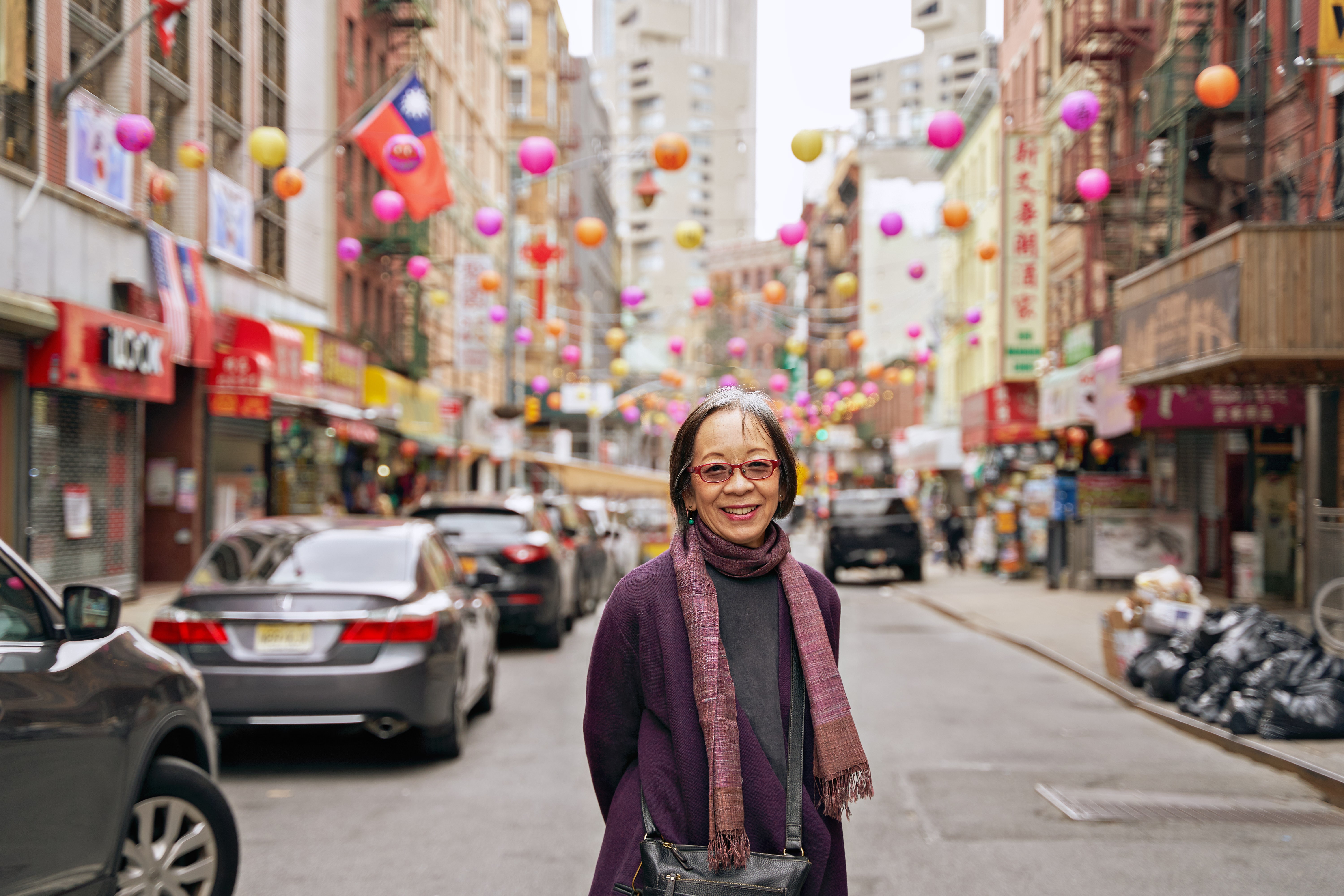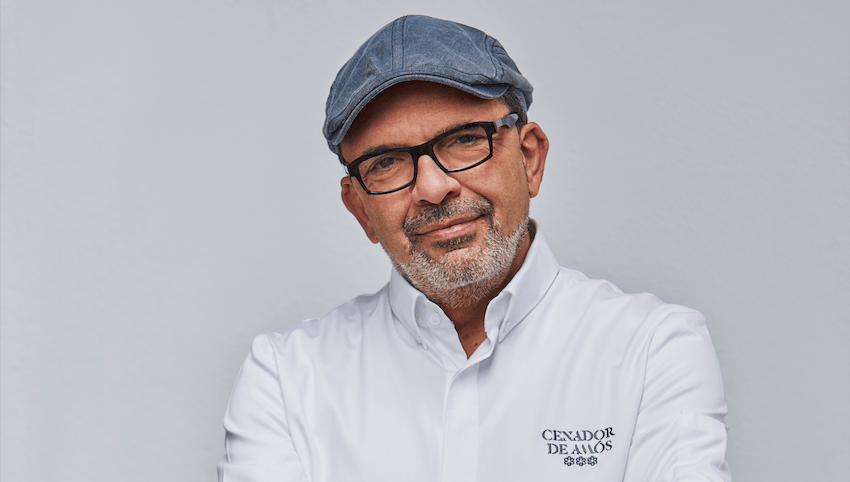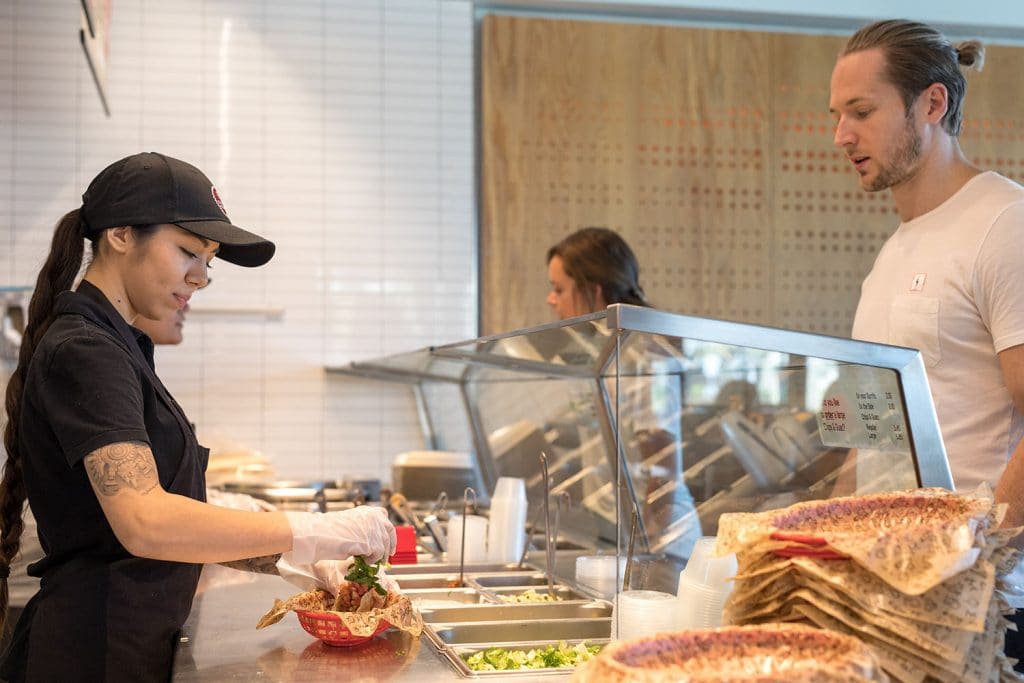
Some superheroes wear capes, others write cookbooks and use a wok. Grace Young is a cookbook author, a preservationist of Cantonese recipes and a self-proclaimed ‘Wok therapist’.
But in March 2020, she took on what is probably her most important role – as a vocal advocate for Chinatown restaurants and businesses in Manhattan.
“It’s still very new for me being introduced as an advocate for Chinatown,” says Young. “I’m a cookbook author. I spent my whole career working in test kitchens, writing cookbooks, and contributing to food magazines. I’ve never been identified as an advocate for any cause.”
It started in March 2020, when she documented the changes in Chinatown in Coronavirus: Chinatown Stories. The Poster House Museum in New York had just opened an exhibition on Chinese posters and Young had been asked to deliver lectures in line with the exhibit. On March 13, 2020, Julia Knight, the museum director called her saying: “All museums are shut in New York City. We know that Chinatown is hurting. Do you have any ideas of what we could do to help.”
Young was touched by the request. No other museum had reached out to ask: ‘What can we do to help Chinatown?’
Young told her: “I’ve been monitoring what’s been going on since January and there’s been an immediate shunning of Chinatown business. I thought I should go to Chinatown and interview some restaurant owners and shop owners. I was going to post these interviews on my social media. I was hoping New Yorkers, on seeing these posts, would rally their support and realize that Chinatown needed our help.”
Knight immediately got on board, offering to post these interviews on the museum’s website. Two days later, Young along with Dan Ahn, a videographer who volunteered his services for this project, interviewed four restaurants and one store. She expected the stories to be heartbreaking but she didn’t expect to witness restaurants on their very last day open.
As Young interviewed Peter Lee of Hop Kee, tears welled in his eyes as he explained, “We’re closing. I don’t want to and I don’t know what’s going to happen next.” Walking into Hop Kee’s 52-year old kitchen that day was a shock for Young. “I’ve been in many restaurant kitchens. Chinese restaurant kitchens are always loud, full of activity, and full of life,” she says. “That kitchen was quiet. They were not cooking. Normally, there was a line out the door. There were only two customers. The looks on the faces of the cooks, the dishwashers, the waiters – everybody knew Chinatown was in trouble. And no one knew what the end of the story would be.”
That night, Mayor de Blasio shut all restaurants and New York went into lockdown. That was Sunday. He announced all restaurants must close by the Tuesday. “You’re only allowed to open for takeout, no more indoor or outdoor dining.”
The struggles
Even before the lockdown, from January to February 2020, restaurants in Chinatown saw their businesses go down by 40-80%. Young recalls the series of events unfolding. There was an immediate shunning. People stopped going to Chinatown. There was a ban on tourists coming from China, followed by a ban on European tourists and American tourists. Between March and June, Chinatown was shut down. Out of 291 or 293 restaurants, only 29 remained open for takeout. Young says: “They were struggling. No one was making a lot of money from takeout, because most people go to Chinatown to eat, not to buy take out and bring their food back to their Greenwich Village or Upper East Side apartments.”
On June 8, Chinatown reopened with outdoor dining and 25% indoor capacity. But, the crowded streets and sidewalks of Chinatown are so narrow, when they had outdoor dining they could not even put out 20 tables. “The lack of indoor dining and the lack of space for outdoor dining put a limit on the amount of money they could make. So I would say from June 2020 to March-April 2021, people were operating from 20-40% of pre-covid.”
Young can list each legacy restaurant and business that closed: 42-year-old Hoy Wong, 40-year-old Mee Li Fruits and Vegetable, over-50-year-old Hop Shing, and 65-year-old WK. A bakery called Lung Moon closed in August, soon after they produced their last mooncakes. Those that remained open need to pay insurance, electricity, gas, water bill on time, or else risk being shut down and taking a year to reopen again. One restaurateur told her their water, gas, and electricity bills amounted to $8,000/month.
These mom-and-pop businesses closing could mean the end of New York’s Chinatown, a historic immigrant community. “If we don’t show up, these businesses are going to go out of business,” Young says. “And when the landlord can’t pay the mortgage or property tax, the landlord is going to lose his building and a developer could just walk in.” She began connecting with the different publications she wrote for in the past to get the word out about Chinatown hurting. In the Spring of 2020, Young received the James Beard award for her book Wok Therapist.
She reached out to the James Beard Foundation in September 2020 to suggest the #SaveChinatownRestaurants campaign on Instagram. They immediately got on board, building momentum for this campaign.
In January 2021, Young started the Support Chinatown Fund. “Initially, the idea was to raise funds for people dealing with food insecurity mostly seniors, but so many people had lost work. A huge percentage of people in Chinatown live below the poverty line. The idea was to provide meals and to support four of the legacy restaurants.
“I was so worried seeing so many of the old restaurants go I wanted the money to go to four really old restaurants: Wo Hop (downstairs) from 1938, Hop Kee from 1967, Hop Lee and Wo Hop (upstairs) both almost 50 years old.” The goal was to raise $20,000. They have now raised over $40,000, allowing them to give the money to other Chinatown restaurants needing assistance.
“These really old restaurants are our last connection to immigrant cooking from a certain era,” Young says. “When we lose these chefs, it’s irreplaceable. When they disappear into the light, we can’t find them again.”
Vibrancy returns
Things look different at time of writing, during the summer months, with more people vaccinated, 75-100% dining permitted, courts and jury duty back open. “Now, when you go to Chinatown during the daytime on a sunny day, there is a vibrancy that we did not have during the winter,” says Young. “There are a lot more people and there’s a feeling like, wow, Chinatown is coming back. I was there last Monday, it’s wonderful seeing the streets busy. But two hours later, a woman was punched in the face. That was a real gut punch to many people in Chinatown.”
The rise in anti-Asian hate crime in the past few months has led many to fear for their safety in going to Chinatown. Many stores now close by 5:30pm, so shop owners can let their employees go home earlier. Some restaurant owners have seen no customers in the evenings. Young has partnered with Asian Americans for Equality to raise funds for the personal safety devices for the Asian American and Pacific Islander (AAPI) community.
In 2019 pre-Covid, Manhattan had 66.5 million tourists. In 2020 there was nowhere near that number. “Chinatowns in Manhattan, San Francisco and Boston are extremely dependent on tourism,” Young explains. “That’s a huge customer base to suddenly lose. We lost 300,000 lower Manhattan workers last year. They were working from home. Chinatown has lost tourist, jury duty, court workers, lower Manhattan workers, and of course, university students.”
Being an advocate for Chinatown feels like a culmination of Young’s lifework. “Apparently, America had 50 Chinatowns. Philadelphia’s Chinatown is a shadow of what it was. We had one in Washington, DC, it has gone. The LA Chinatown is struggling. The Pullman Chinatown in Oregon is no longer there,” she says. “This country once had so many Chinatowns. Now, we are down to just a handful. I guess it’s the same quality that makes me want to preserve family recipes and the wok that makes me realize somebody has to speak up for Chinatown.”
Maida Pineda




